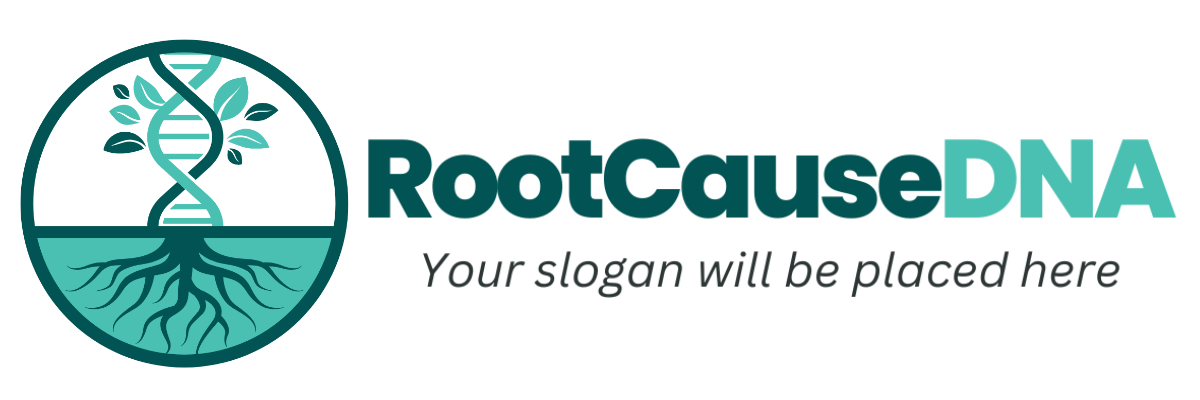Deep Dive Into Methylation, Detox & Inflammation
Deep Dive Into Methylation, Detox & Inflammation
Understanding the intricate interplay between methylation, detoxification, and inflammation is crucial for comprehending how our bodies maintain health and respond to environmental challenges.
Methylation
Methylation involves the addition of a methyl group (CH₃) to molecules like DNA, proteins, and lipids, influencing various biological processes:
• Gene Expression Regulation: DNA methylation typically suppresses gene expression. Abnormal methylation patterns can disrupt normal cellular functions and contribute to diseases such as cancer.
• Detoxification: Methylation is vital in Phase II liver detoxification, converting fat-soluble toxins into water-soluble forms for excretion. This process helps eliminate harmful substances from the body.
Detoxification
Detoxification is the body's process of neutralizing and eliminating toxins, primarily occurring in the liver through two phases:
• Phase I: Enzymes like cytochrome P450 oxidize toxins, making them more reactive.
• Phase II: Conjugation pathways, including methylation, further process these intermediates into excretable forms.
Efficient detoxification is essential for preventing toxin accumulation and associated health issues.
Inflammation
Inflammation is the immune system's response to injury or infection, characterized by redness, heat, swelling, and pain. While acute inflammation is protective, chronic inflammation can lead to various diseases, including autoimmune disorders and cancer.
Interconnections
The relationships between methylation, detoxification, and inflammation are complex:
• Methylation and Inflammation: DNA methylation regulates inflammatory gene expression. Hypomethylation of promoters like Toll-like receptor 2 (TLR2) is linked to increased pro-inflammatory responses.
• Inflammation and Detoxification: Chronic inflammation can impair detoxification pathways, leading to toxin buildup and further inflammation, creating a vicious cycle.
• Epigenetic Modifications: Inflammatory signals can induce epigenetic changes, such as DNA methylation alterations, affecting gene expression and potentially contributing to disease development.
Clinical Implications
Understanding these interactions offers insights into disease mechanisms and potential therapeutic strategies:
• Autoimmune Diseases: Epigenetic changes, including DNA methylation alterations, play significant roles in autoimmune disorders like systemic lupus erythematosus.
• Cancer: Aberrant methylation patterns can lead to uncontrolled inflammation and tumor progression.
• Therapeutic Approaches: Targeting epigenetic regulators may offer new avenues for treating inflammation-related diseases.
In summary, methylation, detoxification, and inflammation are interconnected processes essential for maintaining health. Disruptions in these pathways can contribute to various diseases, highlighting the importance of integrated approaches in prevention and treatment.
Understanding the intricate interplay between methylation, detoxification, and inflammation is crucial for comprehending how our bodies maintain health and respond to environmental challenges.
Methylation
Methylation involves the addition of a methyl group (CH₃) to molecules like DNA, proteins, and lipids, influencing various biological processes:
• Gene Expression Regulation: DNA methylation typically suppresses gene expression. Abnormal methylation patterns can disrupt normal cellular functions and contribute to diseases such as cancer.
• Detoxification: Methylation is vital in Phase II liver detoxification, converting fat-soluble toxins into water-soluble forms for excretion. This process helps eliminate harmful substances from the body.
Detoxification
Detoxification is the body's process of neutralizing and eliminating toxins, primarily occurring in the liver through two phases:
• Phase I: Enzymes like cytochrome P450 oxidize toxins, making them more reactive.
• Phase II: Conjugation pathways, including methylation, further process these intermediates into excretable forms.
Efficient detoxification is essential for preventing toxin accumulation and associated health issues.
Inflammation
Inflammation is the immune system's response to injury or infection, characterized by redness, heat, swelling, and pain. While acute inflammation is protective, chronic inflammation can lead to various diseases, including autoimmune disorders and cancer.
Interconnections
The relationships between methylation, detoxification, and inflammation are complex:
• Methylation and Inflammation: DNA methylation regulates inflammatory gene expression. Hypomethylation of promoters like Toll-like receptor 2 (TLR2) is linked to increased pro-inflammatory responses.
• Inflammation and Detoxification: Chronic inflammation can impair detoxification pathways, leading to toxin buildup and further inflammation, creating a vicious cycle.
• Epigenetic Modifications: Inflammatory signals can induce epigenetic changes, such as DNA methylation alterations, affecting gene expression and potentially contributing to disease development.
Clinical Implications
Understanding these interactions offers insights into disease mechanisms and potential therapeutic strategies:
• Autoimmune Diseases: Epigenetic changes, including DNA methylation alterations, play significant roles in autoimmune disorders like systemic lupus erythematosus.
• Cancer: Aberrant methylation patterns can lead to uncontrolled inflammation and tumor progression.
• Therapeutic Approaches: Targeting epigenetic regulators may offer new avenues for treating inflammation-related diseases.
